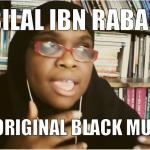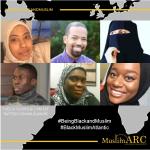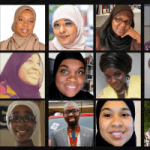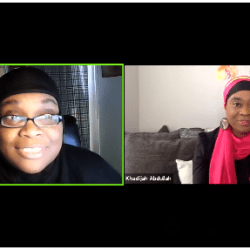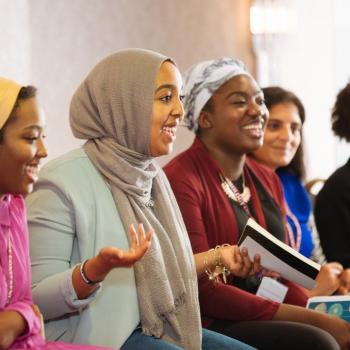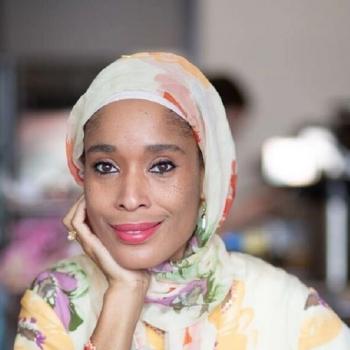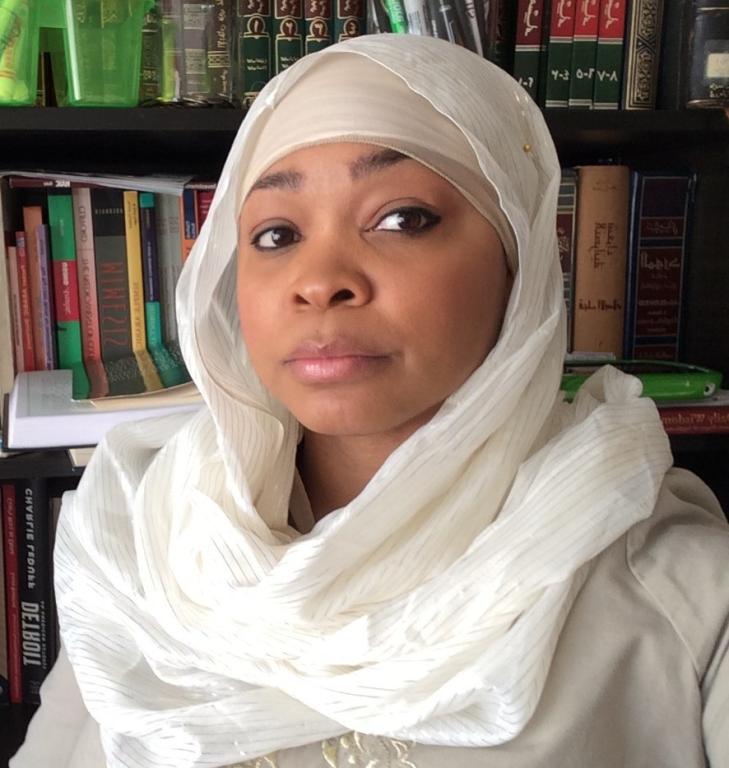
NbA Muslims Staff
The Muslim Anti Racism Collaborative (MuslimARC) is hosting their 5th annual #BeingBlackandMuslim Twitter Townhall on 2/13 at 2 pm EST/ 7 pm GMT. Past town halls highlighted numerous topics affecting Black Muslim experiences globally, including:
- lack of visibility in the media, and being seen as “less Muslim” because of their blackness;
- reflections on identity, history, politics, & culture;
- structural discrimination and policies that have marginalized ethnic minorities in Muslim-majority nations worldwide, and
- raising awareness regarding the harmful usage of “ab**d” to describe black individuals.
This year, the focus of the #BeingBlackandMuslim townhall will be a celebration of the Black Muslim Atlantic, a concept coined by the organization’s co-founder and managing director Margari Aziza.
The Black Muslim Atlantic draws from Paul Gilroy’s Black Atlantic. Aziza describes the Black Muslim Atlantic as an endeavor of transnationalism through literature, intellectual exchange, visual & performance arts, and travel.
The Black Muslim Atlantic is looking at past connections when Muslims from Africa, Europe, the Caribbean and the Americas shared ideas and produced a unique and transcendent culture. We can look at that richness and heritage and glean it happening now on social media, where we are networking, sharing and debating each other. – Margari Aziza
Anchors for the Townhall will be:
- Layla Abdullah-Poulos, history professor, managing editor, NbA Muslims
- Habeeb Akande, Islamic scholar, and author
- Mikel Aki’lah, poet
- Sakinah Kaiser, writer, blogger and mental health advocate
- Na’ima B. Robert, author
- Hanif J. Williams, youth organizer, podcast and online radio host
NbA Muslims had an opportunity to ask Aziza questions about the Black Muslim Atlantic, specifically as it relates to relationships between African American and African diaspora Muslims. She also talked about prevailing attempts to frame Muslims within a “single story.”
As African American Muslims venture out into this Black Muslim Atlantic, how do they keep from drowning in antipathy and biases towards them from non-African American Blacks?
First, connecting with Afro-Caribbeans in the U.K. will be very powerful. Just like African Americans, they embraced Islam after ruptures due to the Transatlantic Slave Trade. We can see its effects on all of us and understand our heritage and the ways that experience shaped us.
We can also explore the influences of Muslims in the Americas and the Caribbean on African independence movements. They were empowered when they connected with us. We were some of the foundational constructors of pan-Africanism and Black identities. It’s through the works of people like Henry Sylvester-Williams, Edward Wilmot Blyden, Marcus Garvey and Malcolm X as well as others that a global platform for Blacks to struggle against slavery, racism, colonialism, and neo-colonialism began to form.
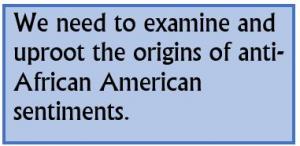 We need to examine and uproot the origins of anti-African American sentiments. When we look at our rich heritage, we can understand how those sentiments serve white supremacy and don’t have a strong basis in historical realities and points of convergences that allowed Black people to rise up against colonialism.
We need to examine and uproot the origins of anti-African American sentiments. When we look at our rich heritage, we can understand how those sentiments serve white supremacy and don’t have a strong basis in historical realities and points of convergences that allowed Black people to rise up against colonialism.
It’s still important for us to be deeply aware of the impact of four hundred years of slavery and one hundred years of Jim Crow on Black people. We can’t just get lost in other people’s movements. When we uproot racism in this society, we’ll free everybody, inshaallah.
Do the Arts have a place in the Black Muslim Atlantic and can it feed into social justice?
The arts are essential in the affirmation of our identity and imagining a future. The arts give us a space for healing and connection. We have to be able to tell our stories. If we can’t talk about our current realities and depict them with an artist’s eye, whether it’s in literature, visual art, storytelling and so on, then we will not be able to go anywhere.
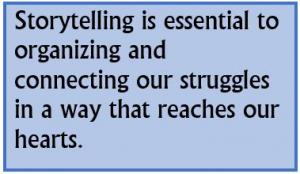 Narrative work is very important. Storytelling is essential to organizing and connecting our struggles in a way that reaches our hearts. You can’t do that with data; you have to give meaning. Art helps give meaning. It shows the aesthetics.
Narrative work is very important. Storytelling is essential to organizing and connecting our struggles in a way that reaches our hearts. You can’t do that with data; you have to give meaning. Art helps give meaning. It shows the aesthetics.
In the Black Muslim Atlantic, we see an aesthetic in the productions of artists like Alia Sharrief, Amir Suleiman, Bobby Rogers, Umm Zakiyyah and others. We can see ourselves and Black folks. We see our cultural patterns like our vernacular.
It’s very important that we create our stories not for the gaze of others but for creativity and expression. What stories do we want our own children to hear? What are the stories we want to pass on to other people?
How are Black Muslim stories muted in the society?
I think that when an Arab or South Asian tells their story that it’s important to present it as their particular experience and one articulation of a complex identity. Some people represent their culture as normative-this is what all Muslims look like-and that’s not true.
We have to be wary of the dangers of the single story, which is what mainstream media wants to do. It wants to show Muslims as Brown, Middle Eastern/South Asian and foreign.
Showing multiple stories is important and American. Share the stories of Indigenous people whose land was stolen, enslaved Africans and Latinos. How they navigate their Islam speaks to the struggles of this country and nation building. It has many tragedies, but there’s also hope that we can build a better society.

